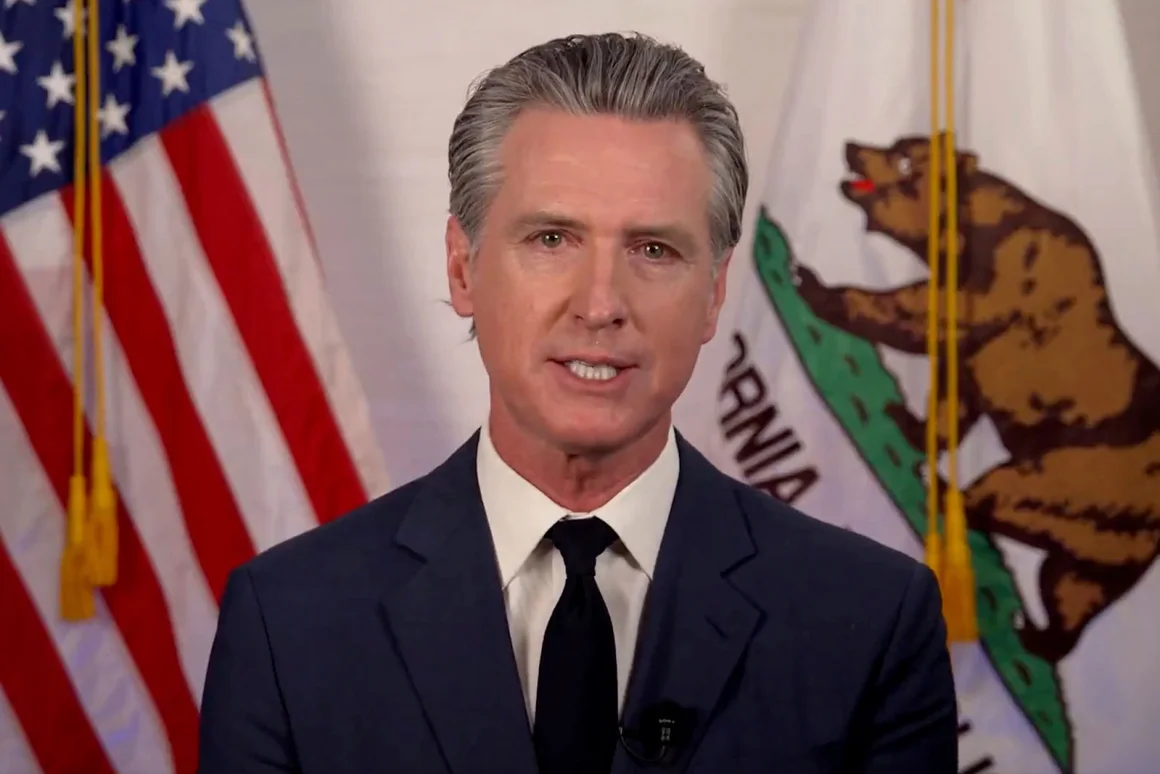Showdowns in California Could Define 2028 Field, Shape Legacy of Trump’s Second Term
Widespread protests against President Donald Trump’s mass deportation drive are fast becoming the defining political flashpoint of his second term — forcing both parties into a volatile and uncertain confrontation with profound implications for the presidency, the 2028 election, and the future of American democracy.
The growing unrest, especially in Los Angeles where Trump has deployed thousands of National Guard troops and Marines, underscores two central pillars of his renewed leadership: the desire to project strength and to expand presidential power. But the gamble is risky. By positioning active-duty military near protesters and escalating his rhetoric, Trump is testing legal and social boundaries that could backfire if violence erupts.
“This administration embraces the sacred responsibility of preserving law and order,” said White House press secretary Karoline Leavitt, defending the president’s aggressive response. She characterized critics as allies of “illegal alien criminals” and “violent rioters,” deploying language designed to dehumanize undocumented migrants and cast Democrats as threats to public safety.
A Political Trap for Democrats?
For Democrats, the moment presents both peril and opportunity. The party’s base is eager for a forceful response, especially after Trump’s electoral comeback and sweeping immigration agenda. Yet party leaders face the delicate task of resisting authoritarian overreach without alienating swing voters who backed tougher immigration controls in 2024.
Enter California Governor Gavin Newsom, who has emerged as one of the few Democratic voices willing to confront Trump directly. In a televised address Tuesday night, Newsom criticized the administration’s actions and sought to rally opposition — a move widely viewed as an early test of his expected 2028 presidential ambitions.
But Democrats lack a unified message or national leader to galvanize resistance. The political vacuum has left them struggling to counter Trump’s narrative — much as they did during his first term.
Trump’s Hardline Playbook
For Trump, the crackdown is a deliberate show of force, aimed at demonstrating control while energizing his base. “I can be stronger on an attack on Los Angeles,” he said in a podcast interview this week, noting that his second term gives him more “leeway.”
Attorney General Pam Bondi reinforced that message, saying, “We are not scared to go further … if we need to.”
Some Republicans, including Sen. Tom Cotton, are cheering the escalation. In a Wall Street Journal op-ed titled “Send in the Troops, for Real,” Cotton called for an “overwhelming show of force” to crush protests and enforce immigration laws, arguing that the threat from the “radical left” justifies extreme measures.
But the strategy is not without risks. The use of military personnel in civilian protests raises serious constitutional questions. If clashes result in deaths or serious injuries, the fallout could be politically disastrous — reminiscent of how Trump’s handling of the COVID-19 crisis helped sink his first term.
A Calculated Bet — and a Potential Breaking Point
Trump is betting that Americans will accept mass deportations and the militarization of enforcement — especially after years of Democratic infighting and border chaos. “America voted for mass deportations,” top aide Stephen Miller wrote on X this week.
But public opinion could shift if images of cruelty or excess emerge. The “kids in cages” moment from Trump’s first term remains a powerful symbol of immigration policy gone too far. Similarly, if law-abiding neighbors or long-resident families are caught up in the sweeps, the backlash could reshape the political calculus.
Democrats at a Crossroads
Newsom’s prominent role offers Democrats a possible blueprint — but also a cautionary tale. Any Democratic leader seen as defending lawbreakers could face the same backlash that helped propel Trump back into power.
Other 2028 hopefuls — including Govs. Gretchen Whitmer, Josh Shapiro, and Wes Moore — must now consider whether to challenge Trump openly or chart a more centrist course. The delicate balance of appealing to both progressive activists and moderate voters could prove decisive in future elections.
The stakes are heightened by the memory of 2020, when calls to “defund the police” alienated many centrists and contributed to down-ballot Democratic losses. Party leaders are determined not to repeat the mistake — even as Trump once again paints Democrats as radicals who oppose law enforcement.
Trump’s Gamble and the American Future
If Trump succeeds in selling a narrative of national emergency — and if the deportation campaign avoids spiraling into tragedy — he may emerge politically stronger. But if violence erupts, or if Americans begin to see the operation as overreach, the backlash could imperil his presidency.
Ultimately, Trump’s second-term immigration strategy may become a defining litmus test for American democracy: whether voters will embrace the promise of order through force — or reject a creeping authoritarianism cloaked in the language of security.


